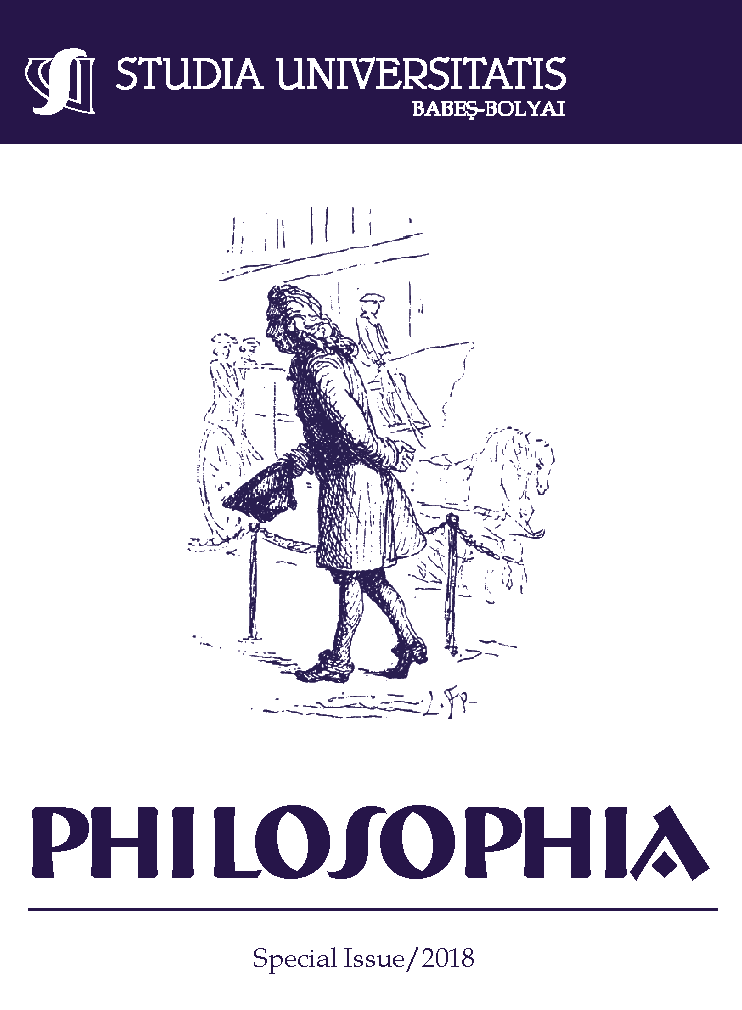ENVIRONMENTAL-EMBODIED EDUCATION: VIRTUES FOR SOCIAL HYGIENE AND SELF-ENJOYMENT
DOI:
https://doi.org/10.24193/subbphil.2018.spiss.06Keywords:
education, ethics, embodied, virtue, sustainability, outdoorAbstract
Environmental-embodied Education: Virtues for Social Hygiene and Self-enjoyment. The contemporary debates concerning environmental education and ethics are continuously growing, developing new ways of perceiving the self in relation to the biotic community and to nature as a whole. Sustainability virtue ethics is a field that can provide a theoretical and practical structure for what it means to live a good and pleasant life, building attitudes characterized by caring, awareness, awe and responsibility. The aim of this paper is to draw a map of how to generate a context that facilitates a real transformation in the way individuals relate to nature, an education for empathy, with a sense of belonging and a maximum of adaptability. Based on my experience as an educator in a green school (Green School Romania) and as a researcher in the field of moral eco-pedagogy, I intent to talk about how environmental experiential education is an Archimedean point for what it means to develop a sensuous enjoyment and self-enjoyment in the biotic community, moving away from defensiveness and unjustified fears. In the context of risk management and long-term strategies for protecting and preserving the delicate equilibrium of life on Earth, environmental virtue ethics represents a necessary and helpful tool, based on interaction and on a focus on the process, discovering the miracle of being aligned with the rhythms of nature. This paper is designed to stand up against the instrumentalism and the dominant egoistic attitude of being above nature, trying to replace them with the attitude of fitting into nature with curiosity, simplicity and serenity. Using the model of moral eco-pedagogy (experiential learning about, for and from the environment) and non-violent communication, I will show that the individual begins to become that self that one truly is, a process of self- realization and engagement with an impact on how he relates to the moral patients and the natural world.
References
Commoner, Barry, (1972), The Closing Circle. Nature, Man, and Technology, Bantam Books, New York.
Freire, Paulo, (2005), Pedagogy of the Oppressed, The Continuum International Publishing Group, New York.
Hursthouse, Rosalind, (2007), Environmental Virtue Ethics, Working Virtue: Virtue Ethics and Contemporary Moral Problems, ed. by R. L. Walker, P. J. Ivanhoe. Oxford: Clarendon Press.
Huxley, Aldous, The Doors of Perception, 22-23, https://www.maps.org/images/pdf/books/HuxleyA1954TheDoorsOfPerception.pdf.
Illich, Ivan, (2000), Deschooling Society, Marion Boyars Publishers Ltd; New Edition.
Ionescu, Thea, Glava, Adina, (2015), Embodied Learning: Connecting psychology, education and the world, Studia UBB Psychol.-Paed., LX, 2.
Jones, Peter, (2010), Responding to the ecological crisis: transformative pathways for social work education, Journal of Social Work Education, vol. 46, nr. 1.
Leopold, Aldo, (1949), A Sand County Almanac, Oxford University Press, New York, Oxford.
Louv, Richard, (2010), Last Child in The Woods, Atlantic Books, London.
Mezirow, Jack, (2003), Transformative learning as discourse, Journal of Transformative Education, 1(1).
Rogers, Carl, (1961), On Becoming a Person, Houghton Mifflin Company, Boston.
Rolston III, Holmes, (2005), Environmental Virtue Ethics: Half the Truth but Dangerous as a Whole in Ronald Sandier, Philip Cafaro, (eds.) Environmental Virtue Ethics, Lanham. MD: Rowman and Littlefield Publishers.
Stegner, Wallace, (1961), The Wilderness Idea, Wilderness: America's Living Heritage, ed. David Brower, San Francisco: Sierra Club Books.
Thoreau, Henry, David, (2004), Walden, or Life in the Woods, The Internet Bookmobile Edition, Text from the Library of America Edition: A Week on the Concord and Merrimack Rivers, https://azeitao.files.wordpress.com/2007/05/walden.pdf.
Downloads
Published
How to Cite
Issue
Section
License
Copyright (c) 2018 Studia Universitatis Babeș-Bolyai Philosophia

This work is licensed under a Creative Commons Attribution-NonCommercial-NoDerivatives 4.0 International License.





